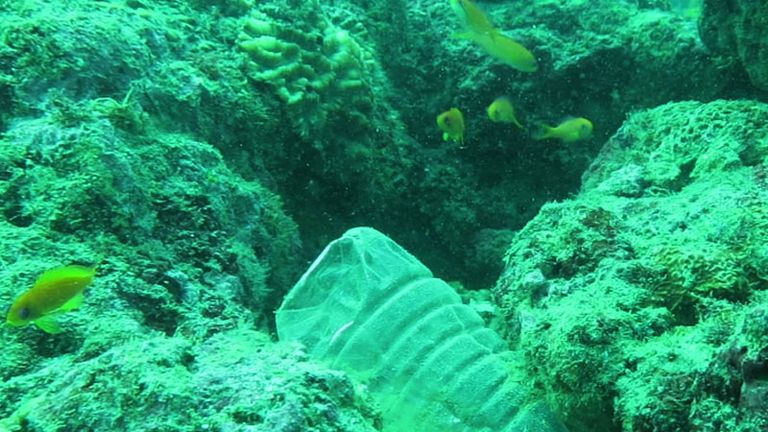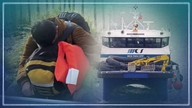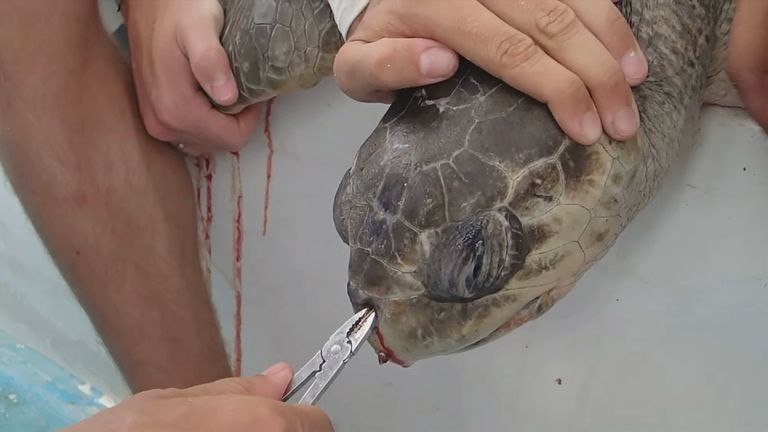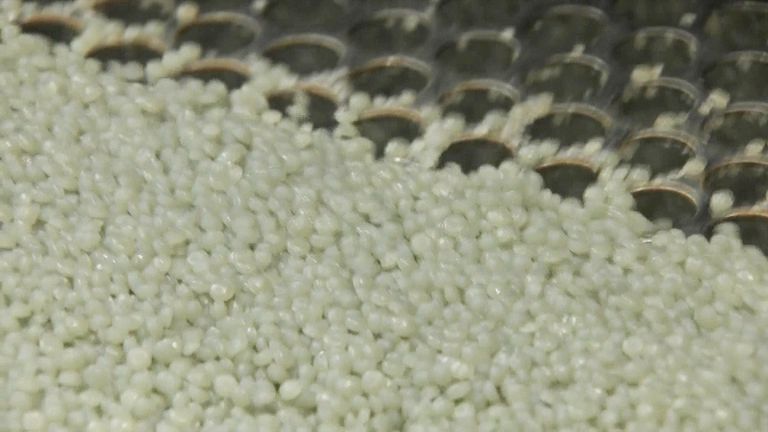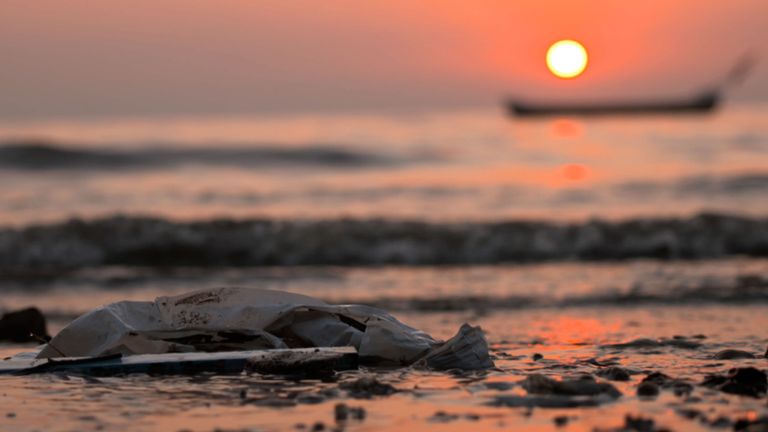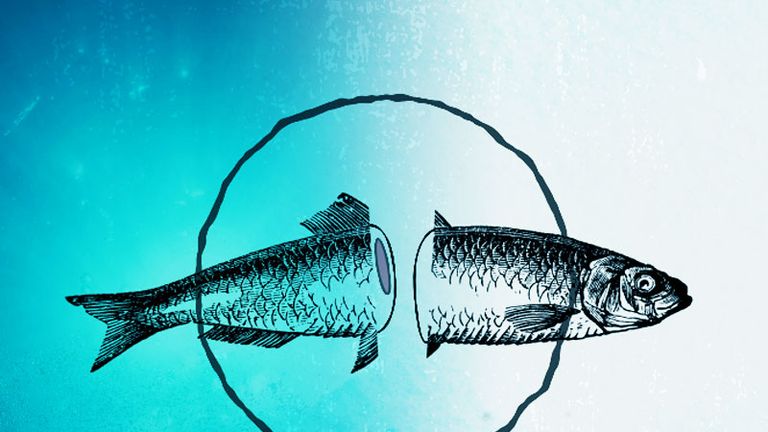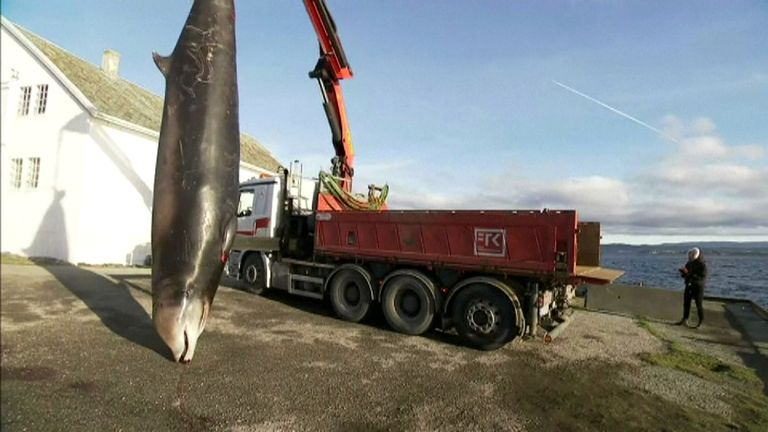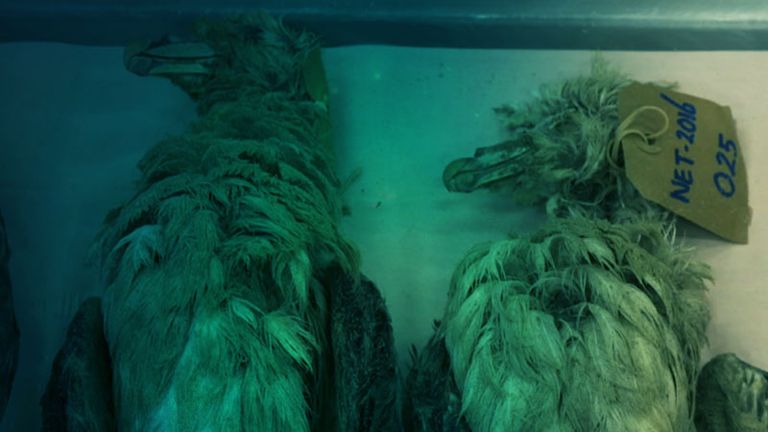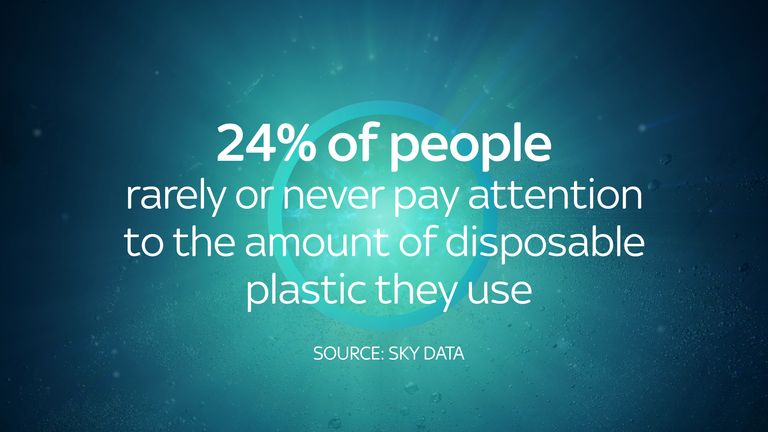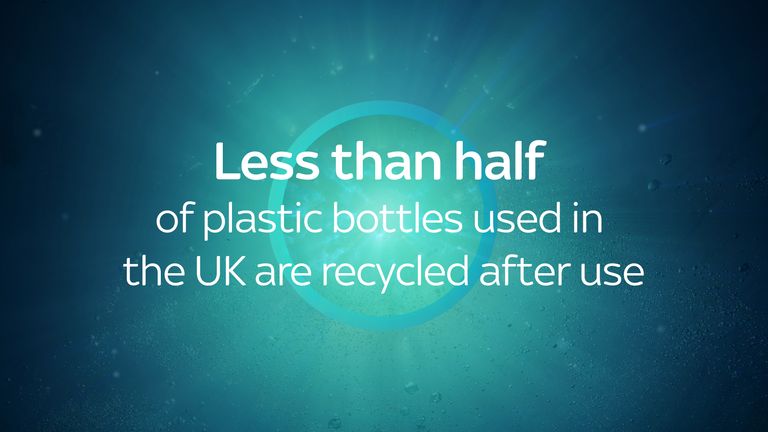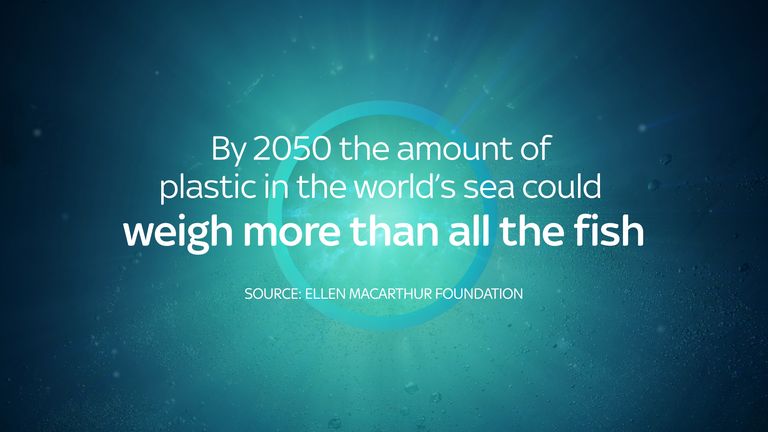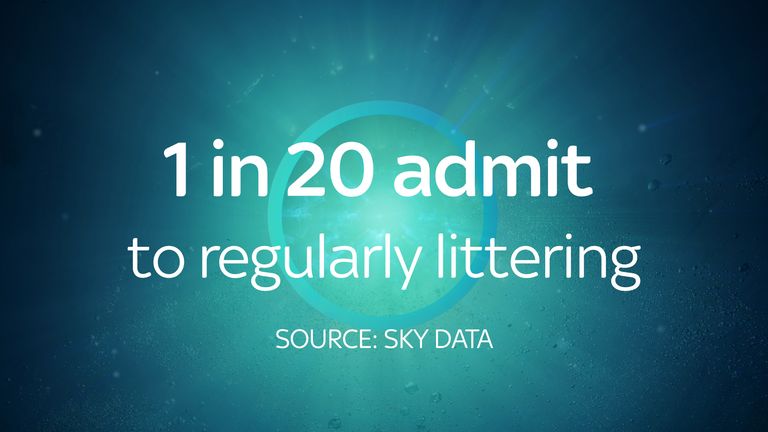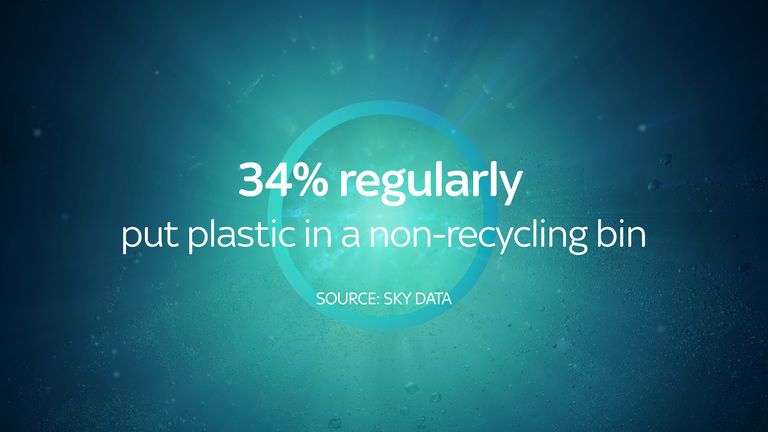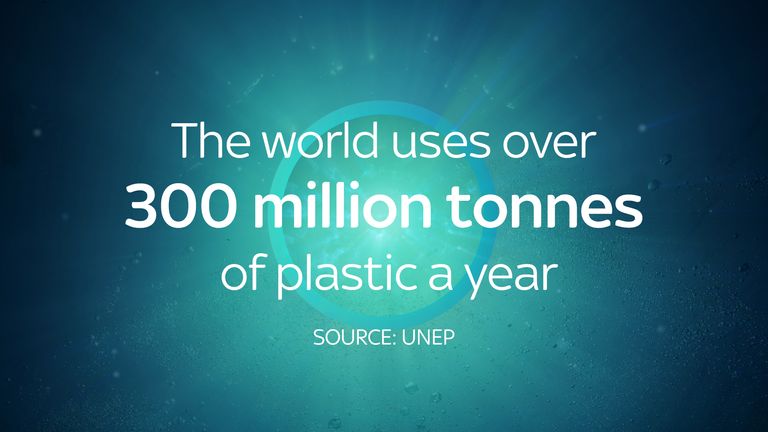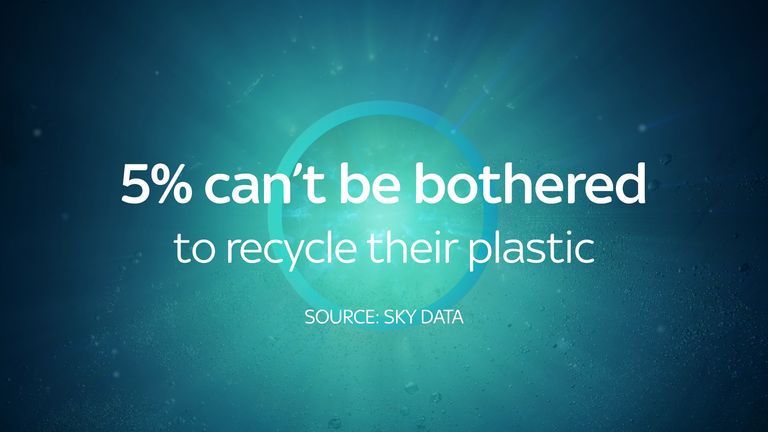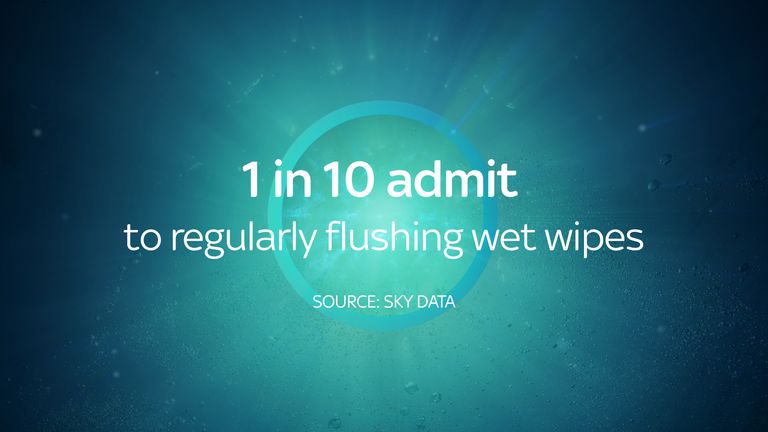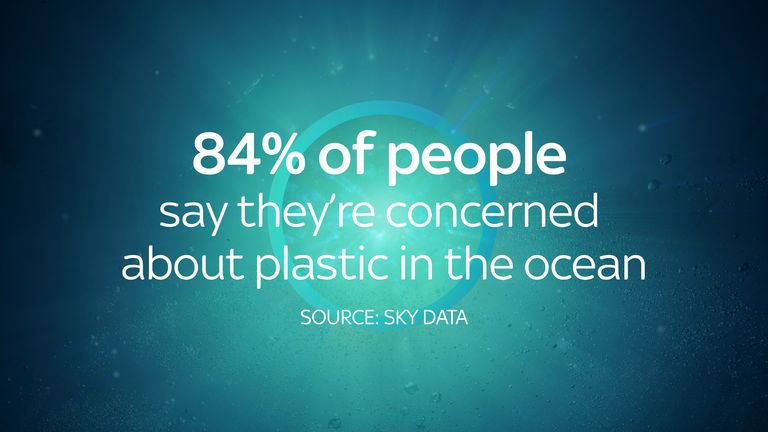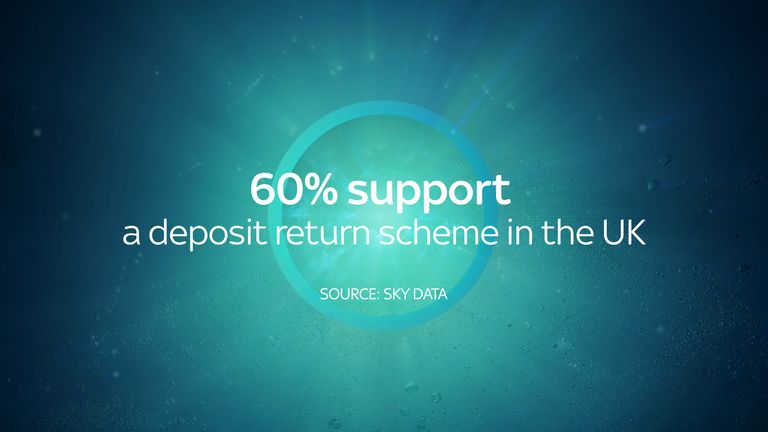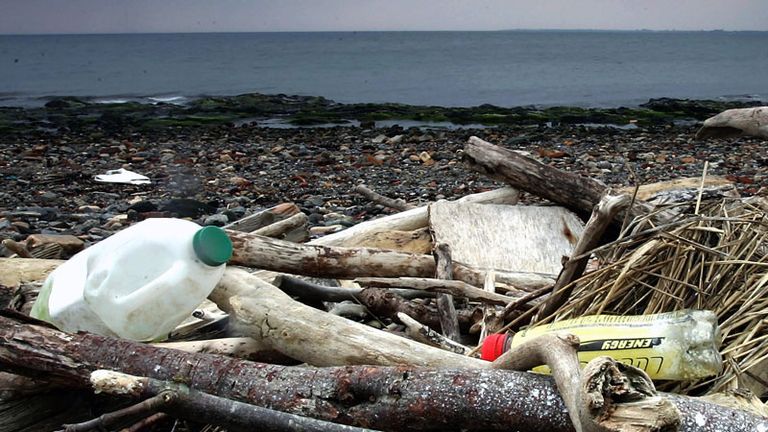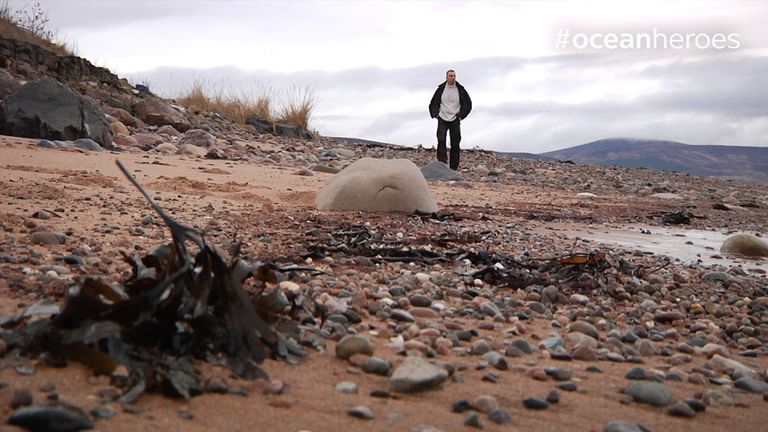Sky Ocean Rescue: How to get involved
Plastic is coming back to haunt us. We must act.
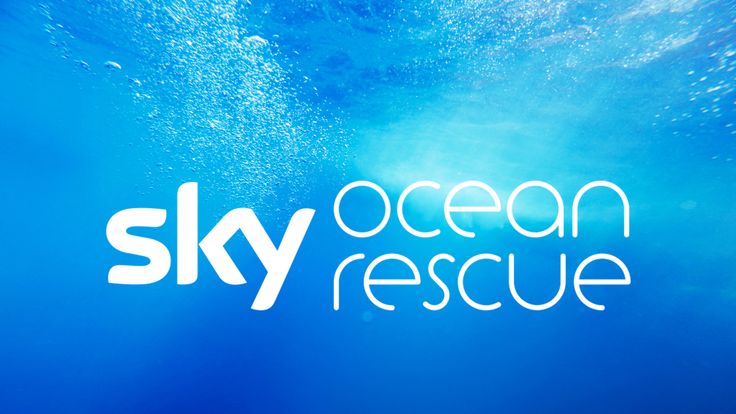
Thursday 27 September 2018 18:29, UK
By Thomas Moore, Science Correspondent
More than eight million tonnes of plastic is thrown away each year and washed out to sea.
It takes centuries to break down. It's eaten by marine creatures. And it's in our food chain. Your seafood supper may have a synthetic garnish. Scientists just don't know what effects it has on our health.
Sky Ocean Rescue is doing something about it. To get involved, visit the campaign website here. You can also watch our documentary, A Plastic Tide.
The problem
More plastic was made in the first decade of the 21st century than the whole of the 20th.
Manufacturers churned out 311 million tonnes of the material in 2014 alone.
Over the next 30 years, annual production of plastic is predicted to soar to 1.8 billion tonnes - the same weight as almost 250,000 Eiffel Towers.
That means by 2050, the plastic in the world's oceans will weigh more than all the fish, according to The Ellen MacArthur Foundation.
Everyone is responsible for plastic in the ocean. From 2014 to 2015, there was a 43% increase in the number of plastic bottles washing up on UK beaches.
The UK's rivers carry plastic from across the country out into the seas around us.
Once plastic reaches open water it can be carried for thousands of miles, but it is more likely to join one of five huge circulating masses of water known as ocean gyres. Gyres are mainly made up of tiny fragments of plastic that build up over time.
These huge masses of plastic are found all over the world.
Why does it matter?
Ultimately, we are eating the plastic we're dumping in the sea.
If someone asked you to take a bite out of your fizzy drink bottle what would you say? You'd almost certainly say no. However, eat six oysters and the odds are you've swallowed 50 pieces of plastic.
Plastics contain phthalates, often found in glue, and bisphenol-A (BPA), which is also used to make DVDs. They are as bad for you as you think they are.
It gets worse. Floating plastic acts as a magnet for pesticides, flame retardants and other chemicals found in the ocean. These chemicals are known to disrupt human hormones and cause cancer.
How does it end up in our food?
Floating plastic becomes brittle in sunlight and then slowly breaks up into ever-smaller pieces as it is churned up by waves. It can take centuries to break down. Many scientists believe plastic never completely disappears - particularly if it's submerged in deep or cold water.
A drink bottle can take 450 years to break down, while a plastic fishing line could last for 600 years.
So if Christopher Columbus had tossed some plastic overboard on his way to discover America in 1492, there would still be fragments floating around the ocean today.
One study estimated there were almost 15 trillion pieces of microplastic in the ocean, but that figure could be as many as 51 trillion.
For marine animals, these particles are indistinguishable from their normal food. Even tiny plankton have been shown to feast on plastic.
The plastic then moves through the food-chain as small creatures are eaten by larger ones.
Scientists can't say how dangerous plastic is to human health, but it's clear the effect on wildlife is devastating. Fish, whales, dolphins... hundreds of species have eaten plastic.
Some seabirds and turtles have been found to have so much plastic in their stomach they can no longer eat the food they need to survive.
This affects their ability to migrate, mate and raise their young. Inevitably, they eventually die.
Discarded fishing gear is also killing marine wildlife, with one report estimating that 308,000 whales and dolphins die every year because they get tangled and drown.
How can we solve it?
Small changes will make a big difference to the plastic problem.
We need to reduce the amount of single-use plastic we use - things like cotton buds, straws, coffee stirrers and cutlery.
Almost 36 million plastic bottles are bought every day in the UK. Less than half are recycled.
We could double that number by introducing a deposit return scheme.
There are already 35 schemes in place around the world. One in Norway raised recycling rates to 96%.
We've already seen how eager people are to help when they're given a nudge. The 5p charge on plastic bags has reduced the number washing up on Britain's coastline by 40%.
A ban on microbeads in cosmetic products will stop 680 tonnes being flushed out to sea from the UK each year.
Campaign success so far
Coca-Cola has made the unprecedented move of dropping opposition to Deposit Return Schemes (DRS) in Scotland. Coke has never supported the schemes prior to introduction anywhere else in the world.
Suez, the largest waste management company in the UK, has come out in favour of DRS, as have smaller but influential players such as the National Federation of Retail Newsagents.
An inquiry into disposable plastic bottles and coffee cups has been set up by the Environmental Audit Committee.
A working group into DRS has been launched by the Department for Environment Food & Rural Affairs.
In Scotland, where the initiatives are most likely to be introduced, the Rural Affairs, Climate Change and Environment Committee is looking into the schemes.
In Wales, Plaid Cymru has also introduced a DRS bill.
How can I get involved?
Three months after the launch of the Sky Ocean Rescue campaign we're asking you to do your bit to protect our Oceans.
We're asking you to be a #Oceanhero and swap out single use plastic from your life.
These are the items that are used just once, sometimes for a matter of seconds, and then thrown away without a thought.
Everything from plastic bottles and coffee cups, to food packaging, straws and stirrers.
Find out more and get involved by visiting the Sky Ocean Rescue website and watch our documentary, A Plastic Tide.
